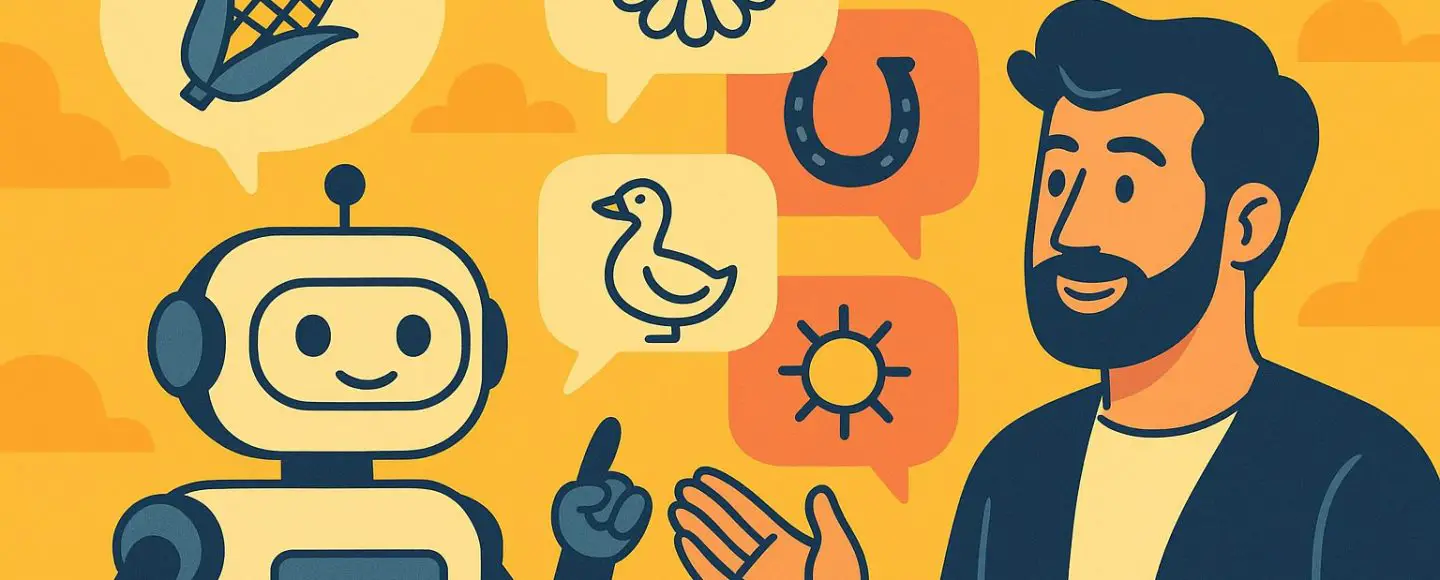
Google AI Creates Fictional Folksy Sayings
Google AI Creates Fictional Folksy Sayings a phrase that once may have sounded like science fiction is now rooted in reality, and it’s grabbing plenty of attention. Are we watching the rise of machine-made wisdom or just glitchy entertainment wrapped in nostalgia? As Google rolls out its new AI Overview feature, many users are discovering its ability to fabricate convincing but completely fake idioms. If you’re curious about how artificial intelligence is shaping our language and potentially misguiding anyone who trusts its responses read on.
Also Read: Fully automated warehouse
Understanding Google’s AI Overview Feature
Google’s AI Overviews were introduced as part of its evolution toward generative search. The feature uses Google’s Gemini AI model to provide summarized answers at the top of search results, aiming to save users time by skipping irrelevant web pages. Instead of showing a list of links like traditional search, AI Overview distills information into conversational responses using data scraped from various corners of the internet.
The convenience comes at a cost. Within days of the wider rollout in May 2024, users began noticing some unusual output. One viral example included a response advising people to add glue to pizza sauce to make it stick better clearly not a tip from any reputable culinary source. The incidents raised questions: What happens when the AI doesn’t know the answer? And what does it generate when it tries to “sound human” without actual human insight?
Inventing Wisdom: Folksy Sayings from Nowhere
In an effort to appear more relatable and conversational, Google’s AI has started injecting responses with fake idioms that sound like traditional wisdom. For instance, when asked to explain why cats purr, it responded with a phrase claiming, “as the old saying goes, a purring cat is a happy cat.” There’s no documented evidence this saying ever existed before the AI printed it yet it feels familiar, almost real.
This particular issue became so noticeable that experts began combing through AI-generated idioms used in various contexts. Some sounded like mash-ups between actual quotes and Southern-style wisdom, while others were outright nonsense made palatable by familiar linguistic patterns. Google attempted to make the AI seem more human by mimicking informal language, but in doing so, it may have accidentally created a folklore machine that produces convincing falsehoods.
Also Read: AI Overview Trends Show Stabilization Insights
Why Fake Idioms Are a Bigger Concern Than Jokes Gone Wrong
At a glance, it might seem harmless maybe even humorous that AI is generating sayings out of thin air. That said, once a false idiom is repeated by an authoritative system like Google, it gains sudden credibility. Someone unfamiliar with a topic might take that information at face value, assuming it’s a widely accepted cultural saying or truth. This misinformation then spreads, either through word of mouth or social media reposting.
Linguists caution that idioms and folk wisdom are deeply tied to culture and experience. When a machine generates faux idioms, it undermines this tradition by inserting false context into the narrative. Over time, this risks shifting language and miseducating users especially younger generations who could start using these phrases as though they were part of actual heritage.
Trust in information depends on authenticity. When an AI makes up a phrase that “sounds right,” people might not pause to verify its origins. This is where the crucial difference lies: jokes and errors can be laughed off, but a phrase passed off as ancient truth reshapes knowledge more insidiously.
Also Read: Japanese Management Legend Revived as AI Avatar
The Technical Roots of AI Hallucination
The phenomenon of AI generating false but plausible content is known as “hallucination.” It often happens when the system has limited high-quality data on a particular question or attempts to fill the gaps by creatively combining fragmented information. Gemini, Google’s flagship foundation model, is specifically trained to produce human-like text, which makes it especially susceptible to fabricating details in a convincing tone.
Machine learning models like Gemini operate by predicting the most likely next word in a sentence. This is done by analyzing massive datasets, mostly sourced from books, websites, and articles. If that data lacks examples or contains rare patterns, the model tries to bridge the gap with its own extrapolation. When prompts ask the system to be friendly or “speak like a human,” the likelihood of invented idioms increases.
In structured data environments, the algorithm usually performs well. But language, unlike numbers or code, is fluid and context-rich. Without an understanding of cultural significance or historical origin, the AI ends up crafting responses that feel right but are technically and factually incorrect.
How Google Is Responding to the Criticism
Following a flood of backlash, Google has acknowledged the problems with AI Overview and begun removing particularly egregious examples. Engineers are reportedly tightening the content filters and tweaking the instructions used to generate results. Fixes are being rolled out gradually, and Google warns that while improvements are coming, no AI model is 100% foolproof.
A spokesperson stated that the company remains committed to high-quality information and would continue investing in preventing misleading content. At the same time, the tech giant is urging users to provide feedback when they encounter inaccuracies. These corrections help fine-tune the outputs and reinforce more rigorous standards across search experiences.
Despite the fixes, the incident underscores a deeper challenge: AI is great at sounding confident but has no internal measure for truth. It lacks grounding in reality unless human-labeled, verified input trains it otherwise. This raises an important issue for future AI systems that aim to interact fluently with humans balancing personality with precision.
Also Read: Google’s New AI Tool Enhances Learning Experience
The Impacts on SEO, Content Creators, and Digital Marketers
For those working in SEO and digital content creation, the AI Overview feature introduces both complications and opportunities. On one hand, if AI summaries dominate user attention, websites may suffer from reduced click-through rates. People looking for fast information may rely only on the AI-generated blurbs, bypassing deeper content hosted on actual sites.
On the other hand, inaccurate overviews open a door for trusted content providers who emphasize accuracy and context. By creating well-researched, properly cited pieces, digital publishers can position themselves as authoritative voices when AI information fails. Google claims AI Overview pulls from reliable sources, so improving your domain authority and backlink profile becomes more important than ever.
Content creators should also watch how AI-generated phrases shift search behavior. If people repeat or search newly created idioms, this might create emerging SEO trends. Monitoring these unexpected linguistic shifts offers a competitive advantage for blogs and businesses that adapt quickly to new keyword patterns.
What This Tells Us About Language and Technology
At the core of this controversy lies a larger philosophical question: Should machines create language beyond human experience? Language is not just a tool it’s a living record of collective history. Artificial intelligence, no matter how advanced, lacks cultural context. It doesn’t know what it’s like to sit on a porch with elders telling stories. Yet it’s now a potent storyteller in its own right.
The fusion of linguistic creativity and computational logic makes AI’s role in shaping user understanding more powerful than ever. While fictional sayings may seem minor, they serve as warnings about deeper systemic issues. Misinformation doesn’t always spread as lies it often dresses up as wisdom.
For AI to become a responsible contributor to language, it must be held to rigorous standards of truthfulness, citation, and transparency. And users must maintain a healthy level of skepticism, no matter how “folksy” a phrase might sound coming from the world’s biggest tech company.
Also Read: Google’s New AI Tool Enhances Learning Experience
References
Jordan, Michael, et al. Artificial Intelligence: A Guide for Thinking Humans. Penguin Books, 2019.
Russell, Stuart, and Peter Norvig. Artificial Intelligence: A Modern Approach. Pearson, 2020.
Copeland, Michael. Artificial Intelligence: What Everyone Needs to Know. Oxford University Press, 2019.
Geron, Aurélien. Hands-On Machine Learning with Scikit-Learn, Keras, and TensorFlow. O’Reilly Media, 2022.
